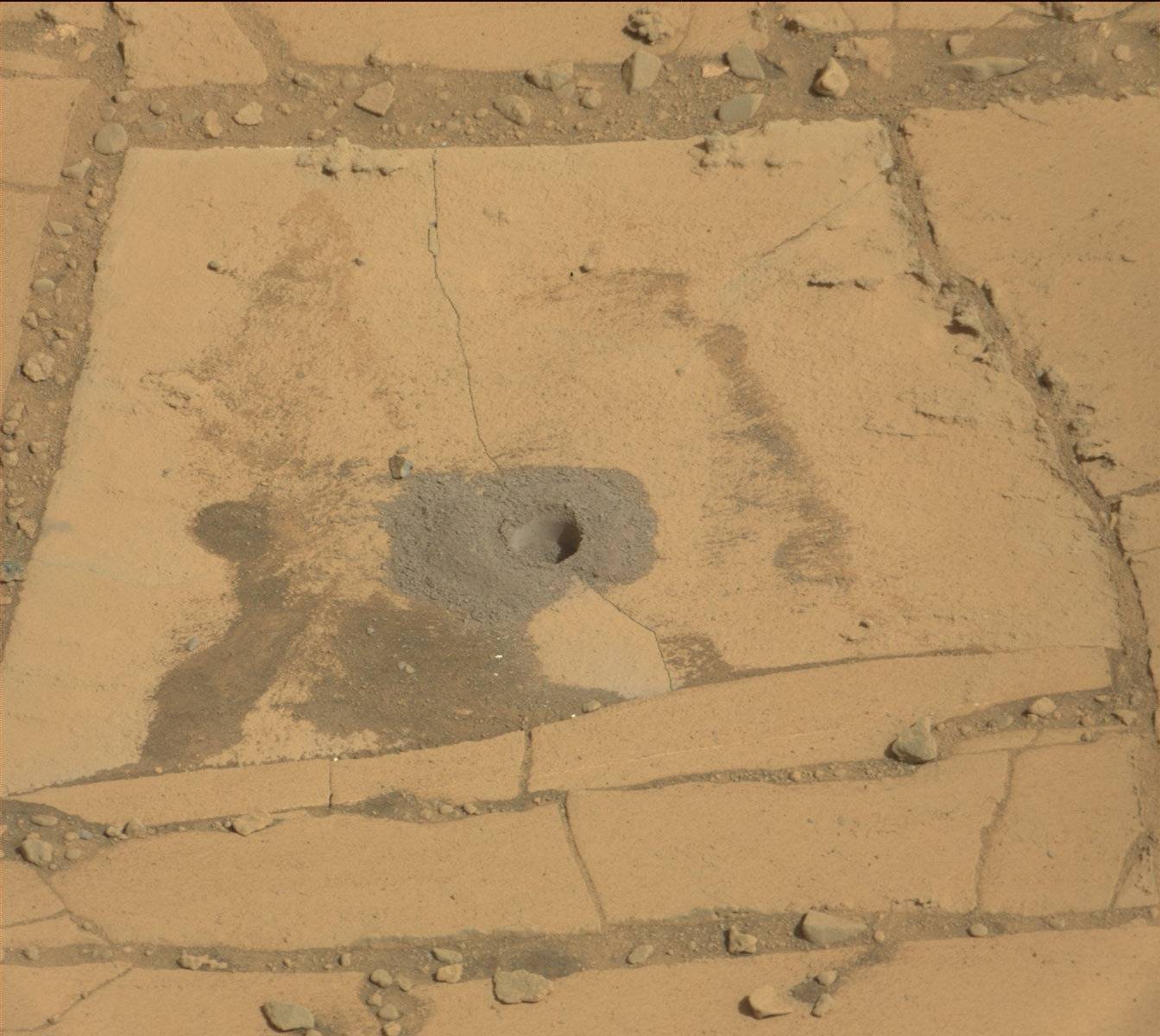Flagpole: the form is ready for concrete... And the concrete is ordered for tomorrow at noon. My backhoe made short work of digging the big hole for the form – took me less than two hours, including finishing the details with a shovel. Not bad for moving more than five cubic yards of heavy, wet soil!
The last step, which I finished just before dark this evening, was to position the steel sleeve in the center of the form. You can see (in the last two photos) my system for holding it in place – using four steel wires tightened down with eye bolts to the point where they twang when plucked. That sleeve shouldn't be moving at all when the place the concrete tomorrow. I built a little plywood cover for the sleeve so that the concrete truck can't accidentally fill it with concrete – that would be a disaster!
Tomorrow morning I'm going to go out there and spray the inside of the form with Pam (spray canola oil) so that the concrete won't stick to the form. I'm hopeful that I can tie ropes to the hooks on the top of the form and just yank it out with the tractor. If that doesn't work, I'll have to tear it apart with a wrecking bar, which would be a lot more work :)
Thursday, September 25, 2014
Barn: we has second story walls!
Barn: we has second story walls! Well, two of them, anyway :) If you're wondering why there are two holes in the floor ... one of them is for the stairwell, and the other is for a “hatch”, 10' x 5', through which I can hoist large things up into the second floor storage area...
Holes in Mars rocks...
Holes in Mars rocks... Curiosity is drilling holes again, this time in some interesting looking rocks at the base of Mt. Sharp. To my (very much inexpert) eye, those rocks look like petrified lake bottom, or dried mud. I'm guessing the Curiosity science team is drilling there to figure out just what kind of rock that is...
Dust from Chad fertilizes the Amazon...
Dust from Chad fertilizes the Amazon... It blows across the Atlantic, settles over the Amazon basin, and acts as a rich fertilizer. But why should dust act as a fertilizer? Turns out it's because the dust is composed largely of fish bones!
Solar sintering...
Shellshock...
Shellshock... If you run any Linux systems (especially) or other UNIX variants, you need to know about this vulnerability. It's in bash, of all things, and it's an arbitrary code execution bug. Nasty. It's patch time, folks...
Google science prize awarded...
Google science prize awarded ... to three Irish teenagers who have apparently made a rather consequential discovery: a simple, inexpensive way to significantly boost the productivity of grain crops.
I keep getting surprised at how biologists, botanists, and agriculture experts (and now teenagers!) keep finding ways to boost farming yields. Those yields have been climbing steadily and rapidly ever since the late 1800s. Any number of times, experts have predicted that the end of these steady gains is imminent – and every time, they've been wrong. We don't seem to have reached “peak agriculture” yet, just as we haven't reached “peak oil” or “peak silicon” yet, either...
I keep getting surprised at how biologists, botanists, and agriculture experts (and now teenagers!) keep finding ways to boost farming yields. Those yields have been climbing steadily and rapidly ever since the late 1800s. Any number of times, experts have predicted that the end of these steady gains is imminent – and every time, they've been wrong. We don't seem to have reached “peak agriculture” yet, just as we haven't reached “peak oil” or “peak silicon” yet, either...
Not so settled after all, that climate science...
Not so settled after all, that climate science... A new paper from two prominent climatologists (Nic Lewis and Judith Curry) uses the same data the IPCC models are based on, but derives a (much) lower figure for global temperature sensitivity to carbon dioxide. The new figure corresponds much more closely than the models to those pesky actual observations.
If you're at all interested in whether anthropogenic global warming is real, this is a must read...
If you're at all interested in whether anthropogenic global warming is real, this is a must read...
Subscribe to:
Posts (Atom)










